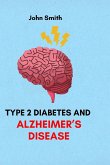Type 2 diabetes is a chronic condition that affects millions of people worldwide. It occurs when the body's ability to produce or use insulin, a hormone that regulates blood sugar levels, is impaired. The management of type 2 diabetes requires a multifaceted approach that includes lifestyle modifications, medication, and self-care practices. In recent years, there has been increasing interest in the role of self-care and cognitive function in managing type 2 diabetes. Self-care refers to the actions that individuals take to maintain or improve their health, including physical, emotional, and social well-being. Self-care practices in type 2 diabetes management include regular physical activity, healthy eating habits, blood glucose monitoring, medication adherence, and stress management. These practices have been shown to improve blood glucose control, reduce the risk of diabetes-related complications, and enhance quality of life. Cognitive function, on the other hand, refers to the mental processes involved in learning, memory, attention, and decision-making. Studies have found that cognitive impairment is common among people with type 2 diabetes and may impact their ability to self-manage the condition. Cognitive function is critical in managing diabetes as it involves making decisions regarding self-care activities, such as medication adherence, dietary choices, and physical activity. John Smith, a renowned diabetes researcher, has conducted extensive research on the impact of self-care and cognitive function on managing type 2 diabetes. His studies have shown that individuals with higher levels of self-care practices and better cognitive function have better blood glucose control and are less likely to experience diabetes-related complications. Additionally, his research has highlighted the importance of tailored self-care interventions that take into account individuals' cognitive abilities and limitations. In conclusion, self-care practices and cognitive function play a crucial role in managing type 2 diabetes. Healthcare professionals should prioritize promoting self-care practices and cognitive function assessment in diabetes management to improve clinical outcomes and enhance the quality of life for individuals with the condition.








